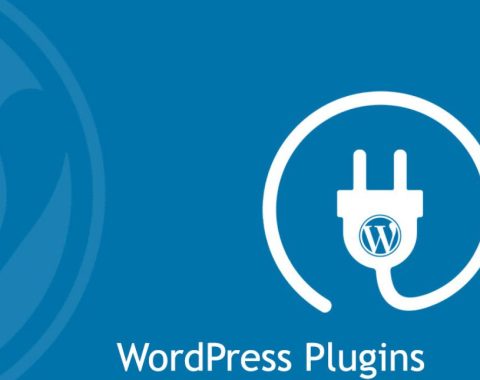An effective business website requires proper website management.
When creating a website, you need to research website content management systems. You choose WordPress because you decided it was the best system for your organization. Another reason is that your organization already used WordPress as part of a previous project. Large companies use WordPress; examples include The New Yorker, BBC America, Bloomberg, Disney Company, Time Inc. and the Times.
WordPress is a popular website content management system that is used by many famous bloggers and brands. According to research by W3Techs, WordPress is used on over 43.1% of all websites — about 63.4% of websites with a known CMS. As Mashable put it:“America runs on Dunkin, but the internet runs on WordPress.”
It’s crucial to have a maintenance plan in place for your WordPress website. This will keep your site running without constant intervention. A lack of maintenance plan is one of the biggest mistakes a website owner can make, as it can be very hard to recover from the damage.
Why Choose WordPress?
WordPress is rather clean to installation, with many customizable alternatives, plugins, topics, and other appealing picks. This makes WordPress a popular platform for both do-it-yourselfers and superior internet developers alike.
With over 50,000 plugins, and heaps of topic choices, WordPress is well suitable to satisfy the needs of various agencies and use case situations – from small corporations, to nonprofits, membership associations, startups, and main groups.
Once properly setup and configured, WordPress is tremendously clean to use as an internet publishing platform, that’s a advantage for business owners and marketing/communications professionals who need to effectively submit internet content material while not having to recognize loads about the era behind the curtain. WordPress also does an amazing task of allowing consumer management with unique levels of permissions, and maintaining a version records of published content material, both of which make it easy to keep manage over who can get right of entry to crucial website features, and rolling back changes in a pinch.
WordPress is likewise so ubiquitous and extensively supported that it has a tendency to play properly with many different third-party tools, and if you need to locate expert help for improvement or renovation, it’s no longer too tough. This is in comparison to different content management systems that can have more confined integration choices and in which professional session is less abundant, frequently coming at a premium.
With such a lot of appealing characteristics, it’s no longer sudden that WordPress has developed into the internet’s maximum famous content management platform. However, this popularity also manner that WordPress website proprietors need to be extra vigilant in keeping their website in an effort to maintain it functioning properly.
Why would you need a WordPress maintenance plan?
WordPress is a very simple and easy-to-use website builder, but it’s also a more advanced computer program with a complex internal source code. Because of this, maintaining WordPress is like keeping any software up to date with regular maintenance.
I’m Concerned About Viruses, Bots and Hackers Together Oh My!
WordPress is a popular target for hackers, bots, viruses and other bad actors in the digital world. The reason is that WordPress is very popular and widespread among website builders; 90% of all content management systems websites were hacked in 2018 according to ZDNet.
Imagine learning that your website contains malware and is unsafe. Or that portions of your website disappear entirely. Or even worse, hackers take control of your site and steal information from your customers. They can also cause serious damage to your company’s reputation and brand by defacing your site.
Updates to your website can solve many of its security concerns.
Keeping your website up to date is the first line of defense against hackers.
Monthly security and performance updates are made to the WordPress platform in order to maintain its integrity. In order to ensure the security of a WordPress website, regular maintenance is needed for plugins and other core code.
With little to no maintenance, many webmasters left their CMS, plugins and themes vulnerable to attacks. This was mainly due to improper configuration issues and outdated plugins and themes. A ZDNet report stated this as the reason for the majority of website hacks.
By regularly updating plugins and the hosted WordPress website, you ensure the most recent security patches are in place. This significantly lowers your chances of being vulnerable to common internet threats. Failing to update your WordPress website puts you at greater risk of being hacked.
A well-maintained website provides a good user experience.
Since plugins are produced and maintained by third party vendors, many WordPress sites use them. Consequently, some security issues may arise when a new plugin is released. It’s wise to keep both the WordPress core version and any plugins maintained by third parties current. And it’s important to perform quality assurance testing when an update is released to ensure that nothing breaks and that performance doesn’t get worse.
When hosting a website, it’s important to maintain high standards of quality. Guests expect fast and error-free web browsing when visiting your site. If your website’s pages don’t load quickly or suffers from broken links, warnings or errors, your guests will likely become frustrated. Improperly maintained websites pose a number of risks to visitors. These can range from unsafe site design to unprofessional hosting. Individuals browsing such sites exhibit lowered trust in the site’s content and are less likely to engage with the website’s business. One of the most effective ways to maintain a professional look and safety is through WordPress maintenance plans.
Hosting plans are not necessarily maintenance plans for WordPress websites.
Every WordPress website requires hosting; different hosting options come with varying costs and features. From budget shared hosting to VPS plans and cloud providers, any hosting option requires additional maintenance tasks separate from the upkeep of the website itself. These tasks include routine software updates, firewall monitoring, and software patching. Some hosts also offer comprehensive administration that isn’t handled by the user.
Typically speaking, taking care of maintenance and updating plugins, themes and core version on your WordPress site need to be handled separately. There are some hosting companies that offer bundles where they handle both maintenance and hosting in one. However, this is rarely the case. Instead, most hosting companies stick to hosting only. This is important to keep in mind because it’s easy to get caught up in the administrative side of WordPress maintenance without thinking through your hosting plan first.
Other than WordPress, what causes these events to transpire?
WordPress is complex software requiring a high level of expertise to maintain. That’s why it’s important to regularly update your version of the software. If you’re using an outdated version of MySQL or PHP, you may no longer be able to host WordPress on your website. This can cause your site to stop running or even cause it to run illegally. More likely, your outdated software will leave you vulnerable to security breaches without even knowing it.




